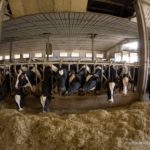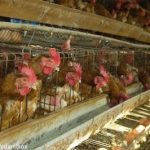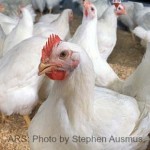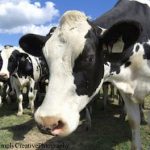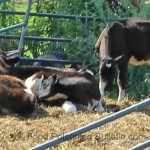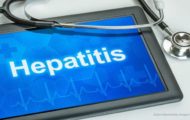A study conducted at the University of Bath has found that factory farming increases the risk of pandemic development. Overuse of antibiotics, low genetic diversity, and a large number of animals increases the risk of animal pathogens transferring to humans. Viruses and bacteria that jump from animals to humans are called zoonotic diseases. Some zoonotic diseases include bird flu, Campylobacter, Salmonella, E. coli infections, swine flu, and novel coronavirus. Scientists investigated the evolution of Campylobacter jejuni, a bacteria that is carried by cattle. This pathogen causes is transferred to people who eat contaminated meat and poultry. It causes bloody diarrhea and cause serious illness in those with compromised immune systems and chronic illnesses. About 1 in 7 people … [Read more...]
Lawsuit Against EPA Over CAFOs Settled
According to Food & Water Watch, a federal court approved a settlement agreement, ending years of litigation over the Environmental Protection AGency's (EPA) release of concentrated animal feeding operation (CAFO) records under the Freedom of Information Act (FOIA). This will protect the public's access to information about factory farm pollution. Industry groups sued the EPA for this information in 2013 when the agency gathered basic information about CAFOs from state agencies. A coalition of advocacy and consumer groups, including Food & Water Watch, the Environmental Integrity Project, and Iowa Citizens for Community Improvement, wanted to protect access to this data. The settlement will require the EPA to withhold some information from the records collected from states, … [Read more...]
Judge Dismisses Challenge on EPA Factory Farm Data
In Minneapolis yesterday, a federal judge dismissed a challenge brought by the American Farm Bureau Federation and the National Pork Producers Council against the EPA. Those groups wanted to block the EPA's ability to release public information about polluting factory farms to citizens and groups concerned about clean water. Food & Water Watch, Iowa Citizens for Community Improvement, and the Environmental Integrity Project, represented by lawyers at the Government Accountability Project, intervened on behalf of citizens. EPA released documents in 2013 about the location, size, and ownership of thousands of industrial factory farms that are a significant source of pollution to streams, rivers, and bays across the country. These farms are largely unregulated and hidden from people … [Read more...]
Governor Brown Vetoes Bill That Would Curbed Antibiotic Use
California Governor Jerry Brown has vetoed a bill that would have curbed the use of antibiotics on factory farms. He stated that most major producers already go beyond the voluntary FDA standards (guidance) for their use and wants to look for other ways to reduce sub therapeutic antibiotic use. Most food safety and medical experts are unhappy with the FDA's stance on this issue, pointing out that guidance documents do not go far enough and that actual rules and laws are needed to curb this growing problem. The Governor is, instead, directing the California Department of Food and Agriculture to work with the Legislature to find "new and effective ways to reduce the unnecessary antibiotics used for livestock and poultry." If the bill had been signed, it would have been the first time … [Read more...]
Reuters Confirms Antibiotic Misuse on Factory Poultry Farms
Food & Water Watch, which has been working against the sub therapeutic use of antibiotics on factory farms, states that Reuters released a report stating that those uses are continuing. Industry data is usually kept private, even from the FDA. Use of antibiotics in this way is linked to the explosive growth of antibiotic-resistant bacteria. The report, titled Farmaceuticals, showed that the nation's largest poultry farmers feed chickens antibiotics routinely. And some of those antibiotics are medically important to human beings. Five major companies - Tyson Foods, Pilgrim's Pride, Perdue Farms, George's, and Koch Foods were the focus of the investigation. More than 300 documents by poultry producers over the last two years were reviewed. These "feed tickets" come from the mills … [Read more...]
Report Links Climate Change and Food Insecurity
A new report released by Center for Food Safety's Cool Foods Campaign states that food security is jeopardized by climate change. The report is called Food and Climate: Connecting the Dots, Choosing the Way Forward. Climate change creates extremes in weather, from temperatures that are much hotter and cooler than normal, and rain and snow amounts that are much lower or greater than normal. In 2012, for instance, droughts and heat waves affected 80% of agricultural land, causing $30 billion in damages. California is now experiencing its worst drought in its 153 year history. That state produces almost half of the country's fruits and vegetables. Food prices are expected to rise significantly this year as a result of this climate catastrophe. Climate change is also causing earlier … [Read more...]
Mass Produced Meat Causing Phosphorous Pollution
NPR has a story on on mass production of meat in America is causing phosphorous pollution. The need for efficiency in food production is damaging the soil and water. Plants need phosphorous in order to grow. Most farmers used to get that mineral into their fields from animal waste. But then the inorganic fertilizer industry was developed, which separated animal production from crop production. Farmers started producing just one type of product, such as chickens, instead of producing chickens along with crops. And those animal factory farms produce tons of animal waste. That animal waste isn't used to fertilize crops anymore; it runs off or is just spread around the farm. When entire regions concentrate on producing chickens, for instance, there aren't many fields to absorb the … [Read more...]
User Fee Approach Proposed for Factory Farm Antibiotic Use
Two scientists writing in the New England Journal of Medicine have proposed a way to control antibiotic use in farm animals in the United States. Dr. Aidan Hollis and Ziana Ahmed from the Department of Economics at the University of Calgary propose a user fee system instead of an outright ban on all antibiotic use for growth promotion and disease prevention. The authors state that since a ban would be difficult to implement, since many farms are geographically remote and it is not easy to determine whether antibiotics are being used for growth promotion of prophylaxis in stressful conditions or for treating actual disease. They say that the goal should be to deter so called "low value" applications, when the cost of antibiotics is more than the value it provides. The user fee, based … [Read more...]
Government Has Exacerbated Problems with Industrial Animal Farms
Johns Hopkins Center for a Livable Future (CLF) has analyzed the Pew Commission on Industry Farm Animal Production (PCIFAP) report and its recommendations to fix health, environmental, animal welfare, and rural community problems caused by industrial food animal production (IFAP). The original report, "Putting Meat on the Table: Industrial Farm Animal Production in America" was released in April 2008. CLF began its analysis late last year. Dr. Robert Lawrence, director of CLF, said in a statement, "There has been an appalling lack of progress. The failure to act by the USDA and FDA, the lack of action or concern by Congress, and continued intransigence of the animal agriculture industry have made all of our problems worse." In 2008, the report found that the negative effects of … [Read more...]
